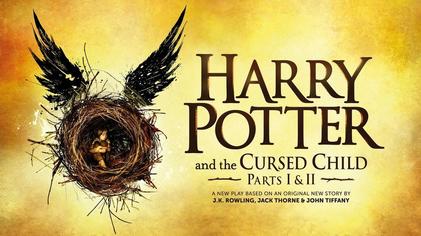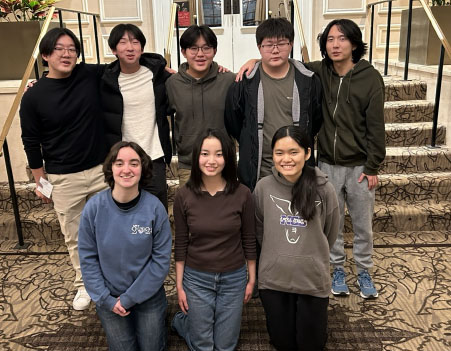Review: The Cursed Child fails to live up to its predecessor

Five months ago, many of us reeled in disappointment when former Uni High librarian Amy Atkinson pulled the April Fools prank of telling us she had received the newest installment in the Harry Potter series. Since many of us were avid fans of the series, our disappointment came from the hope of returning to something from our childhood, something we loved, something we cherished being crushed. Readers of Rowling’s actual latest addition to the series, Harry Potter and the Cursed Child, will experience a similar feeling.
The Cursed Child is most decidedly not a book. Even to say that it is a play that has been adapted into book form is misleading, since it’s just the script Rowling used for her play, held together by a cover. In performing this switch to script form and straying from the typical novel format of her last seven books in the series, Rowling removes almost any trace of description and narration. This reliance on dialogue tends to create a burden on the characters who, in compensation for the lack of contextual description, have to tell the reader what is happening through often clunky exposition.
The awkwardness of the strange format is perhaps underscored best by the story and world that resides within it. The Cursed Child follows the story of Albus Potter, the son of Harry, through Rowling’s wizarding world. A wizard like his father, Albus attends Hogwarts only to find himself overshadowed by his father’s legacy. To rectify this, Albus attempts to right some of his father’s wrongs with Scorpius Malfoy, the son of Harry’s rival Draco, at his side, encountering endless magical trials and discoveries along the way. The vast range of mysticism and wonder that Rowling creates cannot accurately be represented through the eyes of a teenage boy who has experienced it all his life. Rowling’s original series was renowned for its vivid imagery and emotional description that gave the reader a sense of immersion within her world. All of that is stripped and readers are left with the voice of embittered Albus Potter to make up for it.
Albus Severus Potter is aptly named, since he is as hard to like as Severus Snape and about as ambiguous a character as Albus Dumbledore. His story has taken on a grimmer tone, than that of his father’s, but an arguably appropriate one. While Harry’s burden was that of finding himself when faced with a new world, Albus’ burden is finding himself through the cloud of his father’s old one looming over him. As a result, the story Albus tells is fueled by a bitter teenaged rage and youthful impatience. Albus is determined to create an identity separate from his father that is also superior to his predecessor. But as we all know, no one is better than Harry Potter. As a result, Albus trips and falls again and again, growing increasingly frustrated with his futile efforts. His frustration results in sort of cynical perspective that is typical and understandable of adolescents, but a perspective that is severely difficult to enjoy reading.
But Albus is not to blame. Anyone born into the Potter name is sure to feel outshined, therefore Albus’ bitterness should be easy to sympathize with. However, it’s the lack of depth and dimension for the character that truly drives the unlikability of the character home. In the original series, Harry’s development is stretched over 7 years. But rather than spending time developing Albus gradually and delving into his motivations and nuances, Rowling zips through the first three years of his life at Hogwarts, devoting fleeting acts to timeframes that used to take entire books to describe.
Instead of fleshing out this new world or even the hidden aspects of the old world we had yet to discover, the story focuses on the past, on what has already happened, what everyone has already read. The final act of the book is devoted to exploring “What If?” scenarios for Harry’s past, giving it the semblance of a half-decent fanfiction. The original cast of characters takes up nearly a half of the story, leaving barely any room for Albus to have his own adventure. And even in his own adventure, Albus is left confined to exploring his father’s journeys and mistakes.
It may seem that too much time has been spent focusing on comparing this new novel, set in and made for a new generation, to the original novel. This would be an appropriate sentiment if not for the fact that Rowling herself spends so much time reaching into the past for inspiration, and makes the future of Harry Potter wildly different and unlikable to compensate. The story is very much a Harry Potter story. You will find adventure and friendship and family. But you will not find anything new. But you might not find what you were hoping for.

Anika • Feb 9, 2017 at 2:29 pm
Nice story